We are sending a 64-bit enum from our C# back-end to our clients browsers via Web API 2. One of the requirements for the application is that it should run on Windows 10 x64 with ie11. However when I start ie11 I get two processes, one 64-bit and one 32-bit by default. Will a 64-bit enum work with ie11 or not? We do not wan't to go with the enum option if it can't handle more than 32 flags.
We are using TypeScript to handle flags and compiling it to ES5 with Webpack.
What are enum Flags in TypeScript?
We use TypeLITE to generate TypeScript definitions.
http://type.litesolutions.net/
C# model:
[Flags]
[TsEnum(Module = "Application")]
public enum ValidationErrorType : Int64
{
None = 0,
NoCaseForRenewalCycle = 1 << 0, // 1
RegistrationNumberExists = 1 << 1, // 2
ApplicationNumberMissing = 1 << 2, // 4
FeeCalculationNoPrice = 1 << 3, // 8
//...
}
TypeLite.Net4, Enums.ts:
namespace Application {
export const enum ValidationErrorType {
None = 0,
NoCaseForRenewalCycle = 1,
RegistrationNumberExists = 2,
ApplicationNumberMissing = 4,
FeeCalculationNoPrice = 8
}
}
